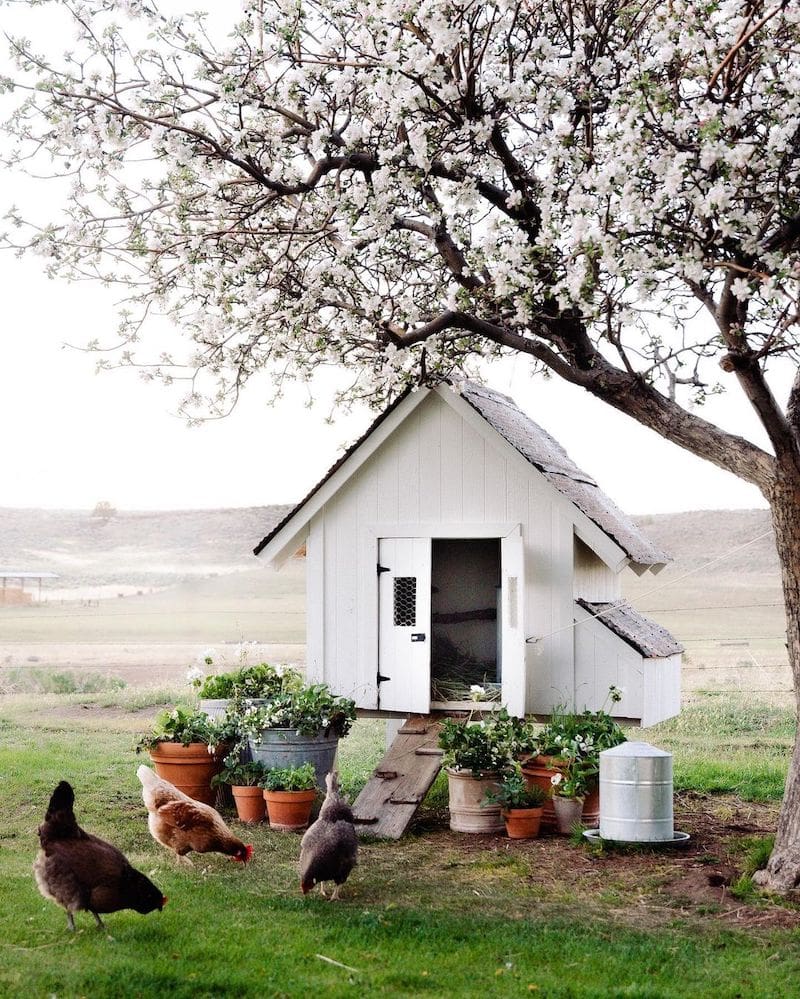Cluckin' Fantastic: Your Ultimate Guide to Finding the Perfect Chicken Coop!
Raising chickens can be a rewarding and fulfilling venture, whether you’re looking to enjoy fresh eggs daily or simply want to add some delightful feathered friends to your backyard. However, before you embark on this exciting journey, one of the most important decisions you'll need to make is choosing the right chicken coop. A well-constructed and thoughtfully designed coop is essential for the health, safety, and happiness of your chickens, transforming your backyard into a cluckin’ paradise.
In this guide, we will explore everything you need to know about finding the perfect chicken coop. From determining the ideal size and style for your flock to considering the materials that best suit your needs, we’ll help you make informed decisions that will keep your chickens comfortable and thriving. Join us as we dive into the world of chicken coops and uncover the secrets to creating the ultimate home for your feathered companions.
Choosing the Right Location
Selecting the ideal spot for your chicken coop is crucial for the health and happiness of your birds. Aim for a location that offers good drainage to prevent water from pooling around the coop, as wet conditions can lead to health issues for your chickens. Additionally, consider the sunlight patterns throughout the day. Chickens thrive in natural light, so positioning the coop where it can receive plenty of morning sunshine will help keep your flock active and comfortable.
Proximity to your home is another important factor. You will want to make your coop easily accessible for regular feeding, egg collection, and cleaning. A location that is too far from your house may lead to neglect in maintenance. Additionally, think about the noise and smell associated with chickens. A spot that is away from neighbors will help maintain a harmonious relationship with those around you while ensuring you have direct access to your birds.
Lastly, consider the safety of your chickens. The chosen location should be secure from predators such as raccoons, foxes, and hawks. Assess the surroundings for natural barriers or existing fencing that could help protect your flock. A coop placed near a sturdier structure like a barn can also provide added security. Ensuring your coop is in a safe location will provide peace of mind and help you enjoy your chicken-keeping experience to the fullest.

Essential Features of a Chicken Coop
When selecting a chicken coop, it is crucial to prioritize adequate space for your flock. Chickens require room to roam, perch, and lay eggs comfortably. A general rule of thumb is to provide at least three to four square feet of space per chicken in the coop and an additional ten square feet per chicken in the run. This not only promotes healthy growth but also reduces stress and prevents aggressive behaviors among your hens.
Ventilation is another essential feature that cannot be overlooked. Proper airflow is necessary to keep your chickens cool in the summer and dry in the winter. A well-ventilated coop helps to prevent the buildup of harmful ammonia from waste and reduces the risk of respiratory issues. Look for coops designed with adjustable windows or vents to facilitate airflow while keeping out drafts during colder months.
Finally, the security of the chicken coop is paramount. Predators such as raccoons, foxes, and hawks pose a significant threat to backyard chickens. Ensure that www.ferrantinet.es has sturdy walls and a robust locking system for doors, as well as a securely fenced run. Buried wire or hardware cloth can provide additional protection against digging predators. A secure coop will give you peace of mind, allowing your chickens to thrive in a safe environment.
Maintenance Tips for Your Coop
Regular maintenance is crucial to ensure your chicken coop remains a healthy and comfortable environment for your birds. Start by checking the coop for any signs of wear and tear, particularly in areas like the roof, walls, and flooring. Repair any gaps or holes to prevent predators from entering and to keep your chickens safe. Make it a habit to inspect the coop weekly, looking for any structural issues that may arise over time.
Cleaning is another essential aspect of coop maintenance. Remove any old bedding and waste at least once a week to keep the coop smelling fresh and to reduce the risk of disease. Replace it with fresh straw or wood shavings, which will help absorb moisture and provide a comfortable space for your chickens. Additionally, regular cleaning of feeders and waterers is necessary to prevent bacterial growth and ensure your chickens have access to clean food and water.
Finally, consider seasonal maintenance tasks. In warmer months, check for adequate ventilation to keep the coop cool. In winter, ensure that there is sufficient insulation to protect your chickens from the cold. Additionally, plan for pest control measures, such as using diatomaceous earth or natural repellents, to keep unwanted insects and rodents at bay. By staying proactive with these maintenance tips, your chicken coop will remain a safe and inviting home for your feathered friends.